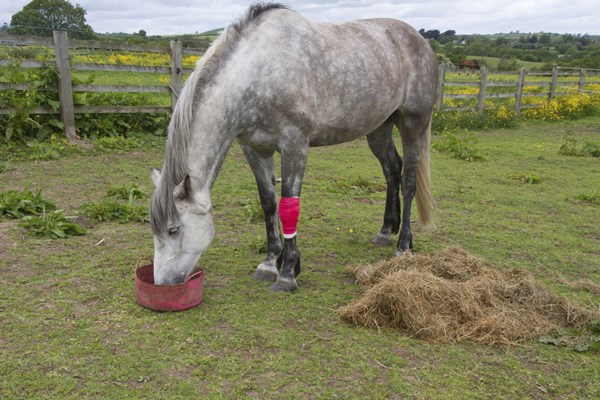 Credit: Thinkstock
Credit: ThinkstockA study conducted at Texas A&M University investigated the effects of oral glucosamine supplementation in young horses. The purpose of the study was to determine whether glucosamine HCl could influence joint inflammation and cartilage metabolism after an inflammatory insult.
In this 98?day experiment, 14 yearling Quarter Horses were fed 1% body weight (BW) of grass hay and 1% BW of concentrate per day. Half of the horses also received 30mg/kg BW of glucosamine HCl top?dressed over their concentrate.
After 84 days, all horses received carpal joint injections with a solution containing lipopolysaccharide (LPS) from E. coli to elicit inflammation. Synovial fluid was collected for analysis from each joint pre?injection and at 6, 12, 24, 168 and 336 hours post?injection.
LPS Injections increased levels of the inflammatory mediator prostaglandin E2 (PGE2) and proteins involved in collagen metabolism in the synovial fluid of all horses involved in the study. However, horses receiving the glucosamine supplement showed significantly reduced PGE2 and less evidence of collagen breakdown as well as increased signs of collagen growth when compared to those that did not receive the supplement.
These results suggest that there is potential for dietary glucosamine HCl supplementation to have a positive effect on joint inflammation and cartilage turnover in young, growing horses.
This research was summarized by Sam Beeson, a University of Minnesota Veterinary Student. Sign up for the University of Minnesota horse newsletter on their website.


